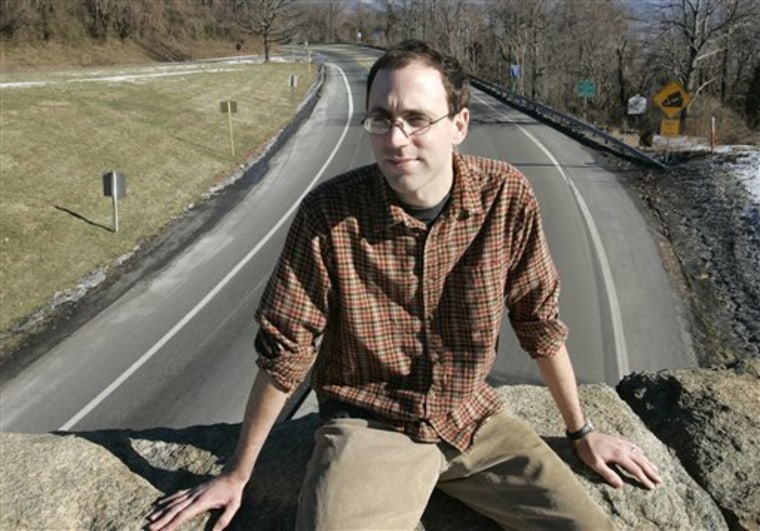There's murder — and more — afoot in the documentary "Sheriff," which takes viewers inside a lawman's life without the accompaniment of interviews, narration, musical cues or even a plot.
Shot in cinema verite, the film is just 50-plus minutes of the camera trained on Ronald E. Hewett, the sheriff for North Carolina's Brunswick County, as he goes about such tasks as investigating murders, addressing an auditorium full of squirming middle schoolers and calming a Baptist church about a nearby nudist camp: "I don't understand it. I'll never understand it ... for the most part, they don't bother people."
Director Daniel Kraus, who served as his own one-man film crew, says he intentionally deviated from the norms of high-profile documentaries and reality television, which tend to focus on big social issues, the famous and the infamous.
"Sheriff," he says, is a glimpse into "the other 98 percent of the country, just the ordinary people plugging away at their jobs."
"I wanted to do something that was very much a time capsule. This is what it was like to be an American sheriff at this point of time in our country's history," Kraus says.
"Sheriff" premieres 10 p.m. EST Tuesday on PBS (check local listings) as part of the network's "Independent Lens" series. Though the film's ultrarealistic style gives it a thrown-together feel, both the PBS version and a longer, 70-minute version for release on DVD represent three years of filming (1999 to 2001) when Kraus was also writing and making a baseball-themed feature film, "Ball of Wax."
"It was an on-call situation," recalls Kraus, who now lives in Chicago but lived in nearby Wilmington at the time. "He would just call me or page me at home and say, ‘I'm on my way to this murder scene’ or whatever it was. ... We might shoot 10 times in a month and then go three months without shooting at all."

Kraus, 30, met Hewett in the late 1990s while working as a news videographer for WECT-TV in Wilmington.
"He's very, very good working with the press," Kraus says. "I always thought of him in the back of my head as, ‘He would be a good subject for a documentary.'"
But even the media-savvy Hewett took awhile to relax around the camera.
"In doing a documentary, it takes months to break the ice where you don't feel like you're actually being followed," Hewett says, adding that eventually he felt like you can "run your show the way you run it."
That led to compelling scenes of Hewett being Hewett: at home with his wife and two children; working with deputies to open an abandoned tractor-trailer that turns out to be stuffed with surprising contraband; busting an illegal video poker operation, where he sweet-talks the proprietor into revealing the location of the cash proceeds.
Hewett comes from a well-known local family; early in the film, Kraus shows a long string of shots of road and business signs bearing the Hewett name. And he is well-respected by his peers, evidenced in a scene at a state conference where Hewett is honored as sheriff of the year for eastern North Carolina. He now serves as president of the state sheriffs' association.
When Kraus first pitched the documentary to Hewett, he was unsure of his subject's reaction.
Hewett says he was drawn to the project mostly by the notion of creating a time capsule.
"I thought it would be a real neat idea," he says, "because I thought it would be neat for my grandkids to be able to take a look back and see what life as a rural, Southern sheriff was."